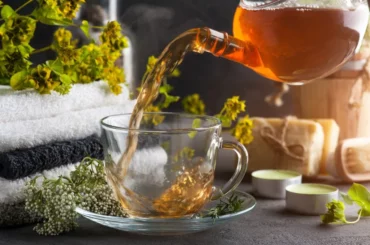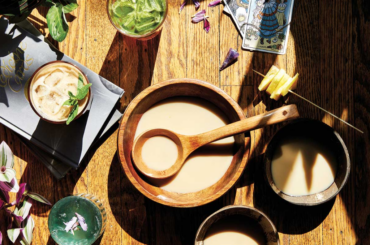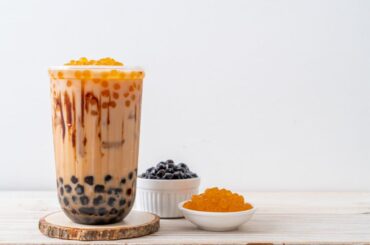Are you prepared to experience the delightful flavors and fragrances of saffron tea? Have you ever wondered about this ancient beverage’s enchanting properties and delightful flavors? What makes saffron tea stand out and captivate tea lovers around the world?
Did you know that saffron is derived from the lovely purple crocus flower and is considered its main ingredient? Saffron tea, known as the “Golden Elixir,” holds a fascinating history and is highly valued for its unique flavor and potential health benefits.
Producing a single pound of saffron requires more than 75,000 blossoms, contributing to its status as one of the most valuable spices globally.
This article on “Saffron Tea Recipe” is perfect for tea enthusiasts seeking a delightful and exotic experience. You can find something you like here, whether you’re a seasoned tea drinker looking for new flavors or a nervous traveler seeking a calming beverage.
Let the flavors and aromas of saffron drink transport you to a world of indulgence and tranquility.
What is Saffron Tea?
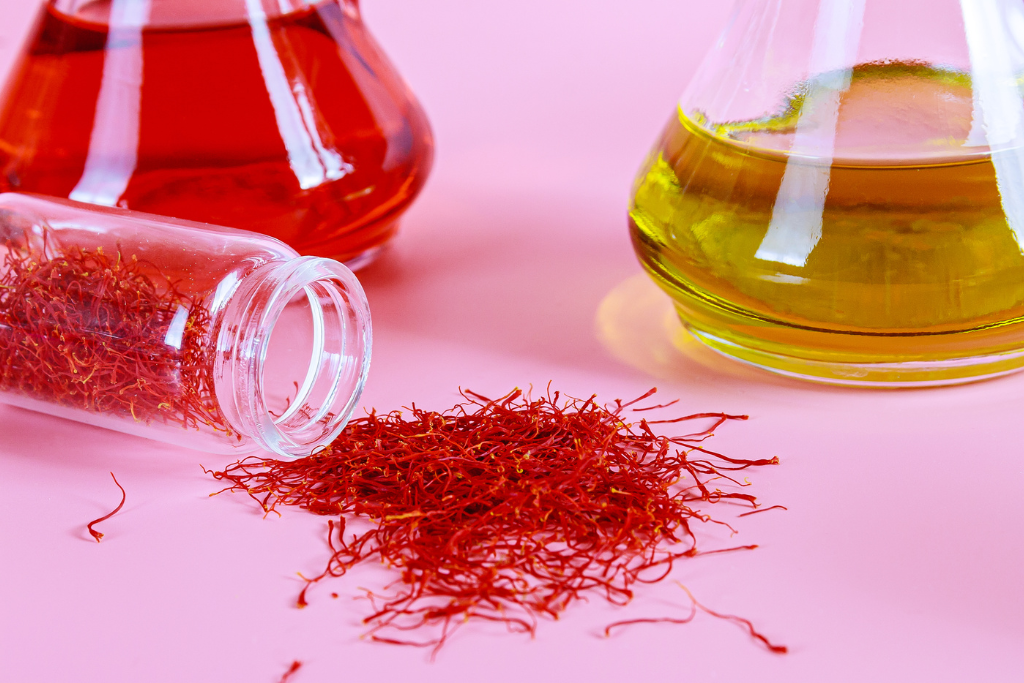
Saffron Tea, known as the “Golden Elixir,” is a delightful beverage derived from the delicate stigmas of the saffron crocus flower. This vibrant orange-red spice is renowned for its unique flavor and beautiful color.
It is not only cherished for its distinct taste but also valued for its potential health benefits and soothing properties. This luxurious and refreshing beverage captivates tea lovers with its golden hue and delightful taste.
How to Use Saffron in Tea?
Saffron crocus stigmas flavor and color saffron tea. Saffron threads are chosen and dried to make the prized spice. These tiny threads scent and flavor hot water or milk when soaked.
What Does Saffron Tea Taste Like?
The taste of saffron tea is unique and light. People often say it smells fruity, slightly sweet, and a little earthy. If soaked for too long, the flavor can become a little bitter.
What is Saffron Tea Good for?
Saffron tea has many health advantages. It protects cells with antioxidants. Saffron tea is supposed to relax, boost mood, and improve digestion. Additionally, it may promote healthy skin and a beautiful complexion. Enjoy the taste and health benefits of saffron tea.
Saffron Tea Ingredients
The ingredients for a delicious cup of saffron tea are straightforward. Here is a numbered list of the main components for your reference:
Saffron Threads
The spice saffron gives the tea a distinctive aroma, flavor, and color. It is made from the flower of the Crocus sativus plant. It is the essential component that gives saffron tea its distinctive flavor.
Water
Water is the base ingredient for brewing saffron tea. It is used to steep the saffron threads and extract their flavors.
Honey or Sugar (optional)
Honey or sugar can be added to sweeten the saffron tea, according to personal preference. This process is optional and can be tailored to suit personal tastes.
Lemon Juice (optional)
A squeeze of lemon juice can be added to enhance the flavor of saffron tea. It provides a refreshing citrusy note and balances the sweetness if desired. This ingredient is optional and can be omitted if preferred.
Milk (optional)
Some people like to add a splash of milk to give their saffron tea a creamy, smooth texture. This ingredient is optional and can be excluded from a dairy-free or lighter version of the tea.
How to Prepare Saffron Tea Recipe
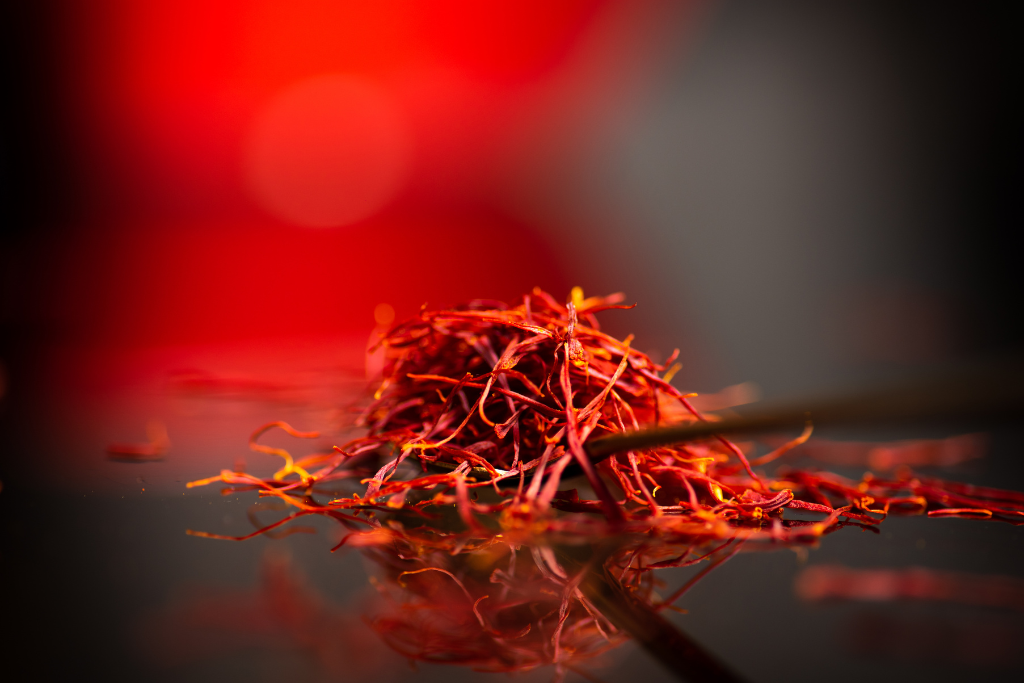
You can enjoy this traditional beverage’s exquisite flavors and aromatic qualities by making saffron tea, which is a straightforward and enjoyable process.
These simple instructions will help you make a cup of saffron tea that will satisfy your palate and carry you away to a world of peace and proverbial wisdom.
- Prepare Your Ingredients: Gather the ingredients for saffron tea, which include water, saffron threads, honey or sugar (optional), lemon juice (optional), and optional milk.
- Boil the Water: Boiling water is achieved by placing a pot on the burner. You may vary the water amount depending on how many cups of tea you prepare.
- Add Saffron Threads: A few strands of saffron should be carefully added to the pot once the water has reached a rolling boil. Allow the saffron threads to steep in the boiling water for about 10 minutes. This will help extract the flavors and colors of saffron.
- Sweeten the Tea (Optional): Heat the mixture with a teaspoon of honey or sugar, if preferred. This step can be skipped if you prefer unsweetened tea or want to adjust the sweetness later.
- Add Lemon Juice (Optional): For a tangy twist, squeeze the juice of half a lemon into the pot and stir gently. Lemon juice adds a refreshing flavor to the saffron tea. The quantity of lemon juice can be changed to suit your tastes.
- Add Milk (Optional): Pour a tiny quantity of milk into the saucepan and stir thoroughly, if you desire a creamy texture. This step is optional and can be skipped for a dairy-free or lighter version of saffron tea.
- Let it Steep: The saffron tea should steep for a few more minutes after the heat is turned off so that the flavors can combine. During this time, you can cover the pot with a lid to help retain the heat.
- Strain and Serve: Pour the saffron tea into cups using a strainer or tea infuser to remove any saffron threads or impurities. Serve the saffron tea hot and enjoy its aromatic flavors and vibrant colors.
Tips for Making Saffron Tea
Here are some suggestions to help you make a truly delicious and aromatic beverage before making saffron tea. By following these suggestions, you’ll be able to make saffron tea.
Tea that is rich in flavor and captures the essence of this esteemed spice.
- Use High-Quality Saffron: For the very finest flavor and scent, you’ll want to make sure the saffron threads you use are both fresh and genuine.
- Steep Gently: It is important to be patient while steeping the saffron threads because they require some time to unleash their essence properly.
- Experiment With Flavors: Add a little cardamom, cinnamon, or even a squeeze of lemon to the tea to give it a more interesting flavor.
- Adjust Sweetness: While adding sugar to the tea, give it a taste to determine the amount of sweetness ideal for your taste.
- Serve It Hot: To get the most out of the saffron tea’s flavors and smells, it should be consumed while it is scorching hot.
Saffron Tea Nutritional Facts
Here’s an estimated breakdown of the nutritional content of saffron tea per serving:
- Calories: 10 cal
- Carbohydrates: 2 g
- Protein: 0 g
- Fat: 0 g
- Saturated Fat: 0 g
- Cholesterol: 0 mg
- Sodium: 0 mg
- Potassium: 0 mg
- Sugar: 0 g
- Vitamin: 0 mg
- Calcium: 0 g
Disclaimer: Please note that these nutritional values are approximate and can vary depending on serving sizes and recipe variations. Adding sweeteners or high-fat milk can increase the calorie and sugar content. For personalized advice, it’s best to consult a healthcare professional or registered dietitian.
Benefits of Saffron Tea

Discover the many benefits of saffron tea, beyond its delightful flavor, here.
- Rich In Antioxidants: The antioxidants in saffron tea help prevent cell damage caused by free radicals.
- Promotes Relaxation: A cup of saffron tea is a great way to unwind and calm your nerves. This will help you relax and get rid of worry.
- Supports Mood Enhancement: Saffron tea is known for its mood-lifting qualities, which can improve your general mood and make you feel better.
- Digestive Aid: Give saffron tea a try; it may help to relieve stomach discomfort and aid in proper digestion.
- Potential Anti-Inflammatory Effects: It’s possible that drinking saffron tea can help reduce inflammation throughout the body.
- Supports Radiant Skin: The vitamins in saffron tea can help keep your skin healthy and glowing, which can help you look younger.
- Aids In Weight Management: Adding saffron tea to a healthy diet and busy lifestyle can help you reach your weight-loss goals, making it a valuable addition to your routine.
FAQs
Should Saffron be Boiled?
No, saffron shouldn’t be boiled in water because the high heat can destroy its flavor and scent. Instead, saffron should be soaked in warm water first to extract their flavorful essence.
What is the Best Way to Drink Saffron?
The spice is often prepared for ingestion by steeping saffron threads in hot liquid, such as water or milk. It is commonly held that this preparation of saffron maximizes its flavor. Saffron’s unique flavors and smells can then be fully integrated into the drink, elevating the experience to new heights.
Who Should Not Drink Saffron?
Pregnant women should avoid consuming excessive amounts of saffron, as it may stimulate contractions. Individuals with known allergies to saffron or related plants should also refrain from drinking saffron tea.
Can I Drink Saffron Tea Every Day?
Yes, saffron tea can be consumed daily. Nevertheless, moderation is key. The best course of action is to discuss it with a qualified medical practitioner or a trained dietitian to ensure that it meets your health’s particular requirements.
What is the Best Time to Drink Saffron?
Saffron tea can be enjoyed whenever it’s convenient. It’s available whenever you want to sit down and enjoy it. It might be a refreshing pick-me-up in the morning or a soothing end to the day for different people.
What are the Side Effects of Drinking Saffron Tea?
If used in moderation, saffron tea poses no significant health risks. Negative effects, such as nausea, dizziness, and allergic reactions, have been linked to excessive ingestion. Use only the suggested amount of saffron in your recipe.
Can I Soak Saffron Overnight to Drink?
No, there is no need to soak saffron in water for an entire night. It is sufficient to steep saffron threads in hot water or milk for a few minutes to extract their flavors and acquire a delectable beverage infused with saffron.
When Should We Avoid Saffron?
Anyone previously identified as allergic to saffron or plants closely related to it should avoid consuming saffron. Additionally, because saffron has been shown to encourage labor contractions, pregnant women should limit their use of spice.
Can I Put Saffron in Water and Drink It?
Yes, saffron can be added to water and consumed. Saffron threads are steeped in hot water to release their flavors and aromas, resulting in saffron-infused water that can be consumed as a beverage.
Does Saffron Expire?
Yes, saffron does have an expiration date. Using saffron within 2 to 3 years of its harvest is recommended for optimal flavor and quality. Proper storage in an airtight container, away from heat and light, can help extend its shelf life.

